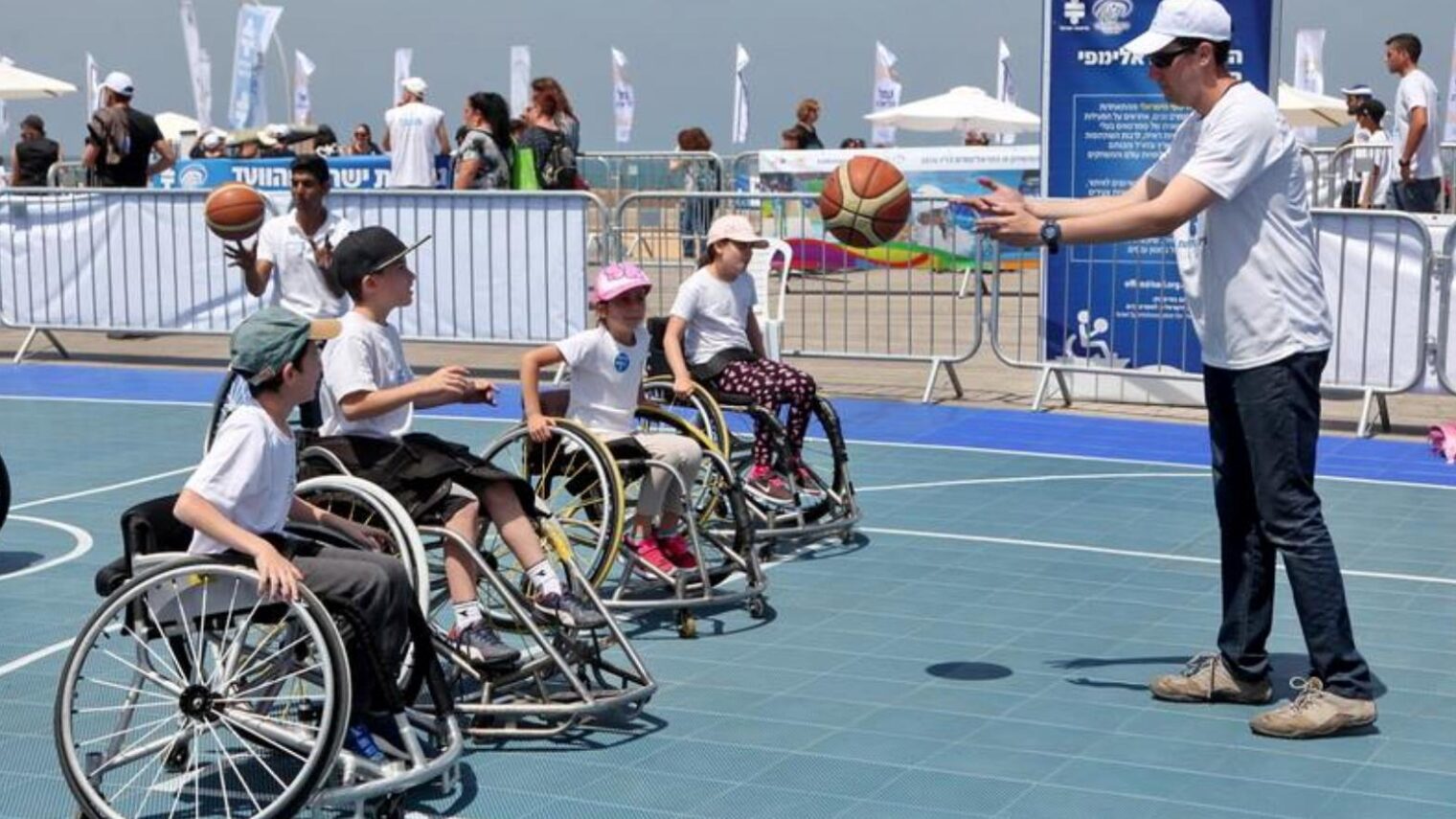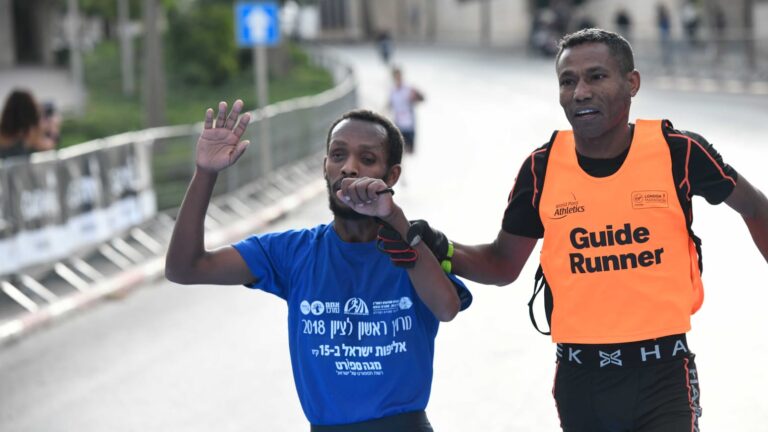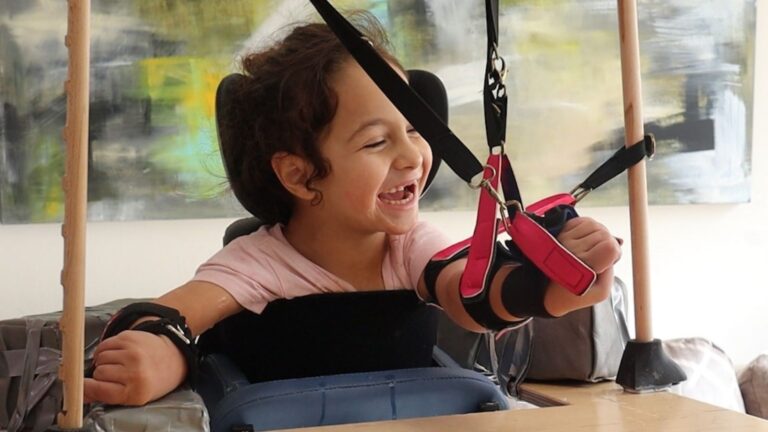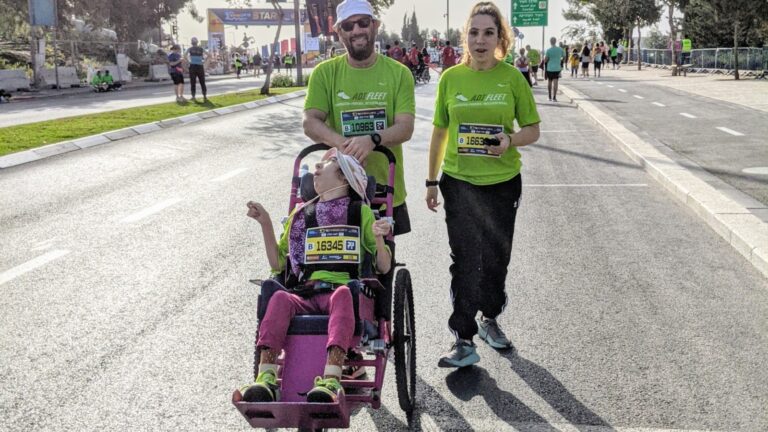The wheelchair obstacle course – replete with potholes, uneven surfaces, architectural obstacles and tight corners – was fun. Nati, my guide and helper along the course, even complimented me on my wheelchair maneuvering skills, although we both knew it would be best if I never had to use them again.
The wheelchair obstacle course was the most popular of the activities set up by Access Israel and the Paralympic Committee for the eighth annual Accessibility Awareness (Lehargeesh Negeeshut) Day at the Tel Aviv Port.
This year’s event, which took place on a sunny Friday morning (April 28), drew hundreds of participants and volunteers to try out Paralympic sports and learn about mobility challenges faced by handicapped people every day in Israel.
People in wheelchairs, some with walkers or canes, and others on electric scooters were joined by able-bodied participants of all ages.
The organizers of Accessibility Awareness Day set up fun activities to drive to drive home a serious message: equal access for all.
“So long as there is access for all, handicapped people can also learn, enjoy and concentrate on sports,” said Yuval Wagner, founder and president of Access Israel, a non-profit organization leading the push for greater accessibility for an estimated 1.5 million people with disabilities living in Israel today (20 percent of the population), of whom about 700,000 are severely disabled.
My kids – ages nine, nine and seven– tried goalball, a team sport designed for blind athletes that is similar to soccer. Everyone wears an eyepatch to keep the playing field equal for blind and seeing alike. A player throws a ball embedded with bells to the opposite net and the teams need to listen for the ball and try to stop it with their bodies before a goal is scored.
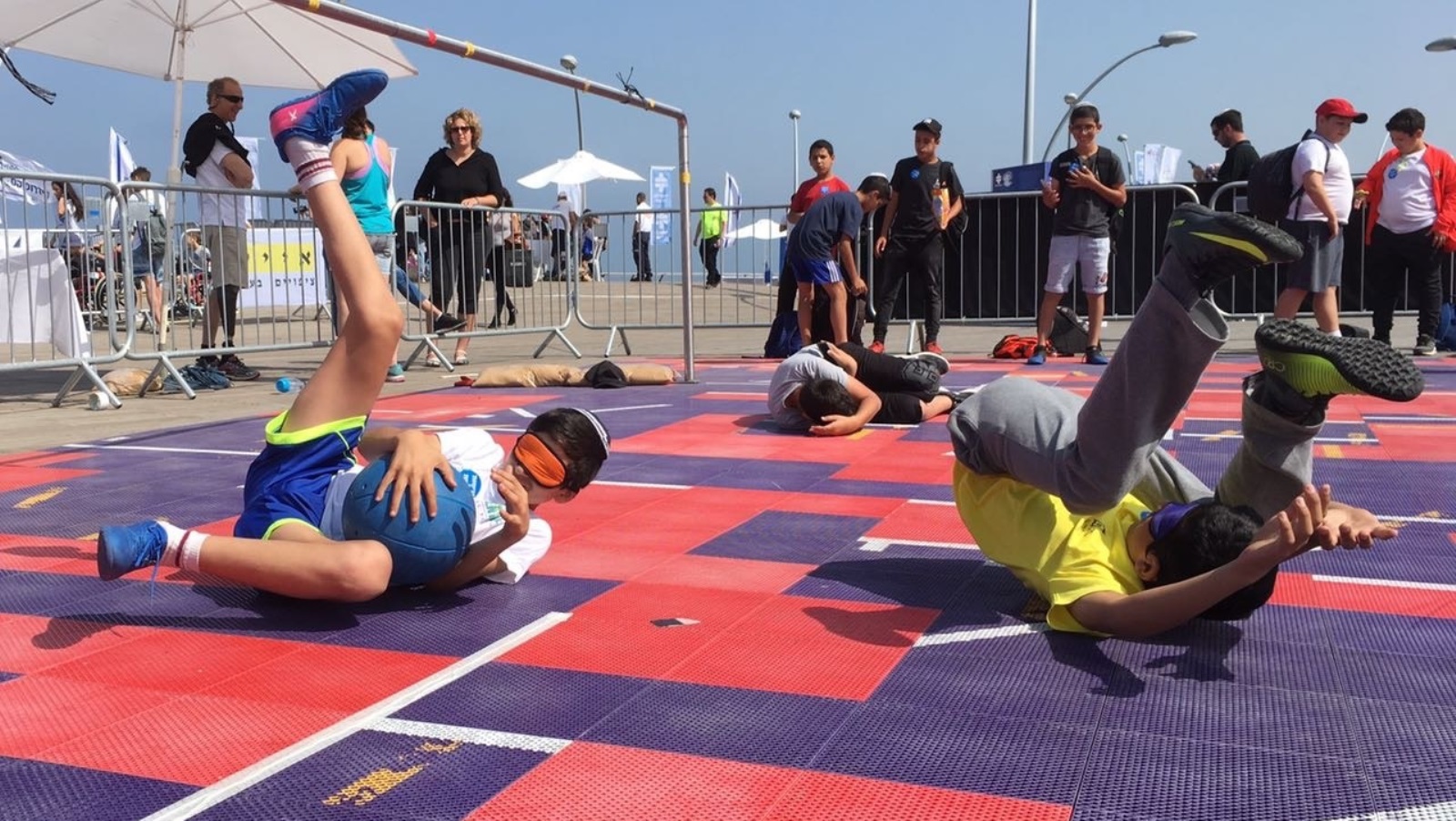
My kids also tried the obstacle course and a VR wheelchair waterskiing activity, and donned noise-canceling headphones to feel how a deaf person goes through life.
The kids also got “I love you” temporary tattoos in sign language.
Access Israel and the Paralympic Committee constructed a wheelchair basketball court at the Tel Aviv Port and invited able-bodied corporate league teams to try their luck at the wheelchair version of the game. A mini wheelchair tennis court was set up nearby.
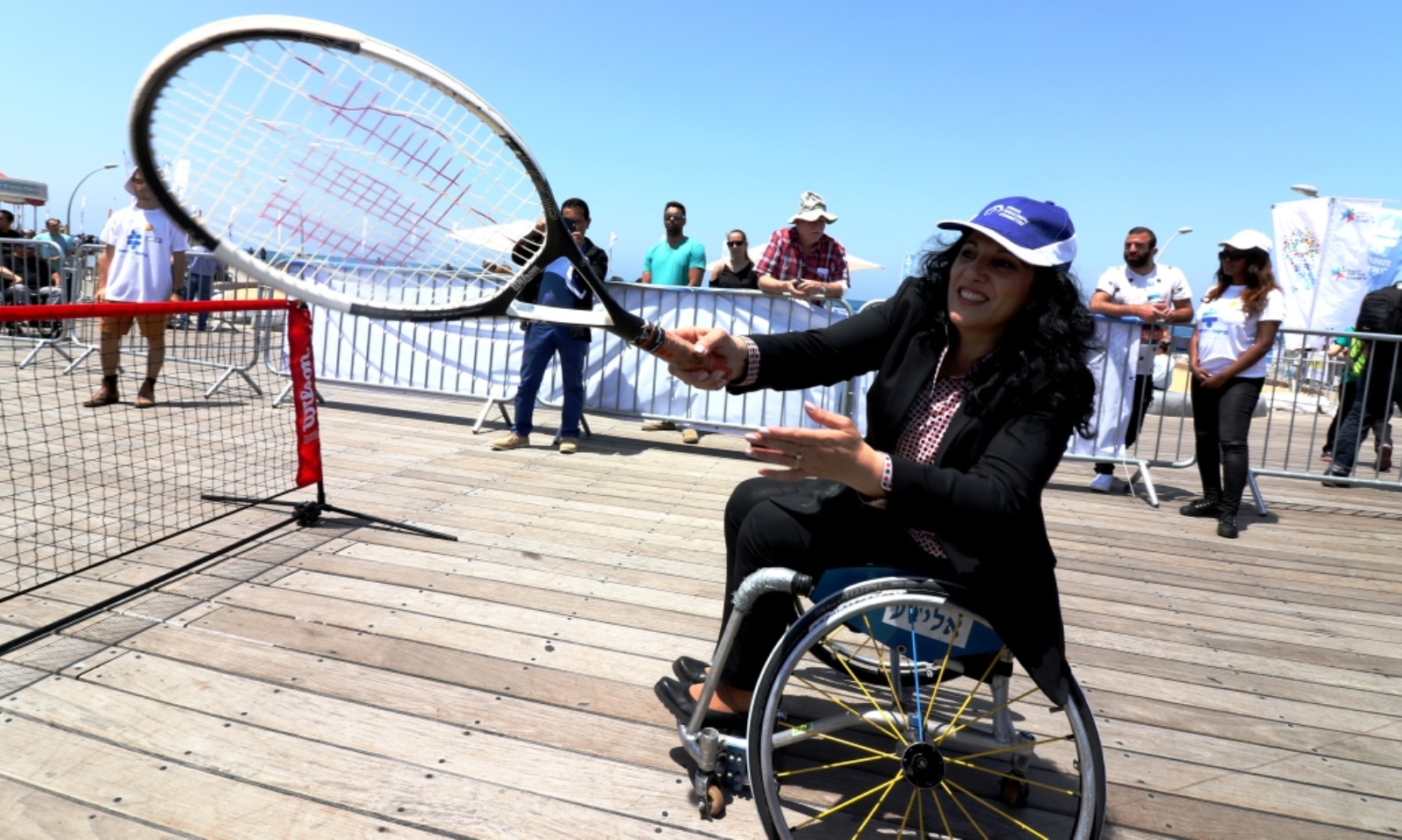
The day also included a flyover and a sailing regatta by members of Etgarim: Israel Association for the Disabled.
In addition to access, the event was also about integration. And that message clearly came through to our kids.
At home that night, they wanted to know how people become handicapped.
We live next door to a group apartment housing people with intellectual disabilities. Our kids regularly chat with Natalie, one of the residents. So, there were many questions about how the physically disabled we met at Accessibility Awareness day are different from Natalie, our neighbor.
We spoke about how anyone – regardless of religion, economic background or social status – can be disabled.
And most importantly, our kids came up with ideas of how we can help people with any daily accessibility challenges they may face. Their two big ideas: holding open a door and speaking nicely to someone without pitying them.
It really is that simple.




